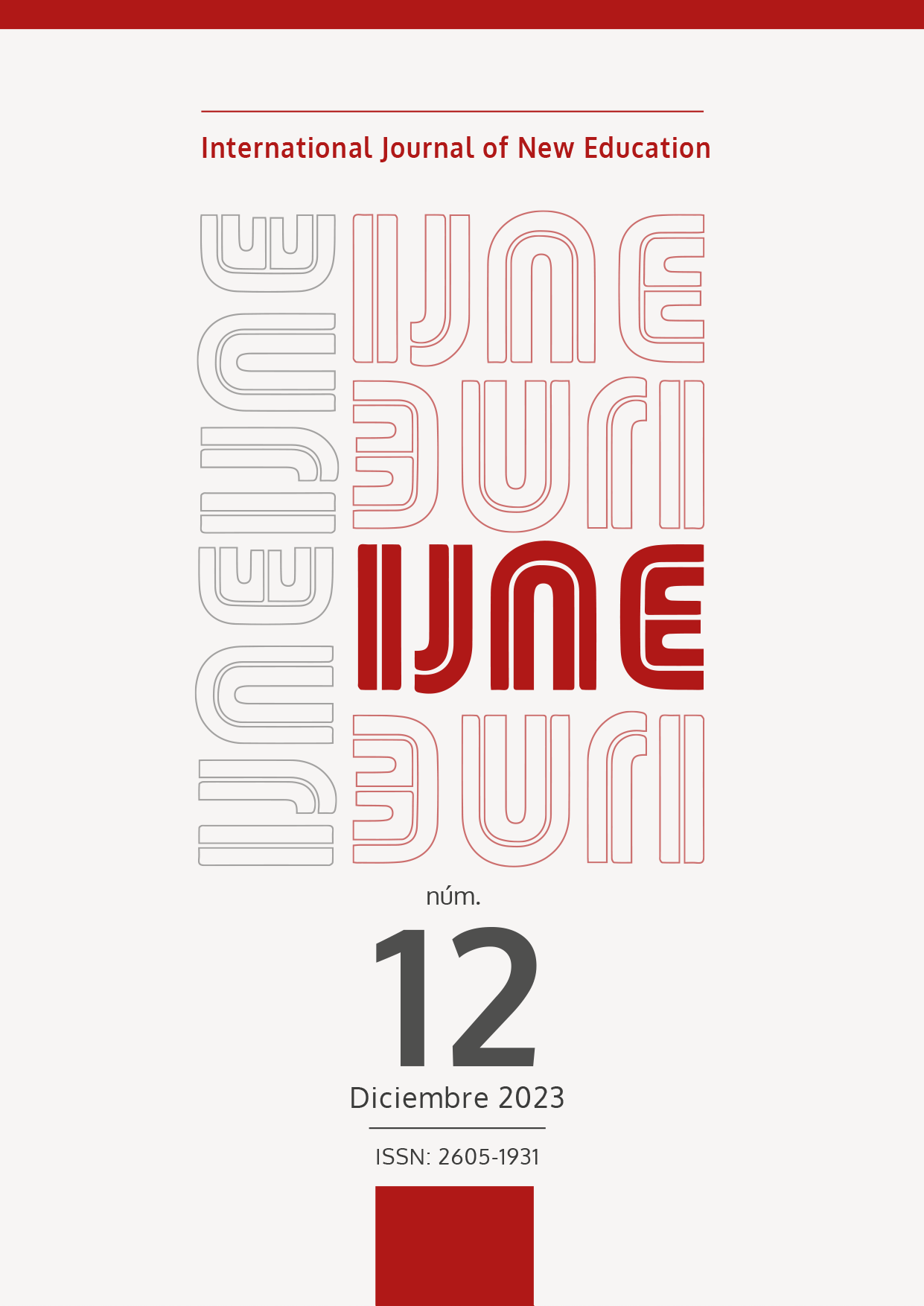Sexuality education as a framework for discussion and implementation of inclusive practices in university pedagogy
DOI:
https://doi.org/10.24310/ijne.12.2023.17830Keywords:
Sexual Education, Hermeneutics, InclusionAbstract
This article delves into the significance of Comprehensive Sexual Education (ESI taking into account its initials in Spanish) in higher education, proposing a multidisciplinary, hermeneutic, and supportive pedagogical approach. Since the implementation of Argentine Law No. 26,150 in 2006, ESI stands as a cultural framework that transcends the traditional biologist paradigm, encompassing biological, psychological, social, affective, and ethical aspects. The Resolution of the Federal Council of Education No. 340/18 reaffirms these values and establishes five conceptual axes to comprehend the comprehensiveness of ESI.
Through a case study at the University of Buenos Aires, the application of hermeneutic pedagogy in an academic writing support workshop at Ezeiza prison is highlighted. This workshop acknowledges the students' life stories, promoting writing as a social practice, integrating personal experiences with academic writing.
Emphasis is placed on the importance of recognizing individual capacities (inspired by Martha Nussbaum and Amartya Sen's "capabilities") and the fundamental role of teachers in supporting these capacities. An inclusive vision for higher education is proposed, advocating for a shift in existing paradigms and recognizing diversity, life experiences, and individual capacities as cornerstones for a fairer and more equitable education. ESI and hermeneutic pedagogy emerge as key elements for this transformation, challenging traditional academic practices and promoting a more inclusive education respectful of diversity.
Downloads
Metrics
Publication Facts
Reviewer profiles N/A
Author statements
Indexed in
-
—
- Academic society
- N/A
- Publisher
- Universidad de Málaga
References
Cáceres, B., Ordoqui, A., & Naveira, C. (15 de octubre de 2019). Economía Femini(s)ta. Obtenido de https://economiafeminita.com/: https://economiafeminita.com/por-que-les-adolescentes-argentinos-tienen-que-auto-educarse-un-panorama-de-la-educacion-sexual-integral-en-la-argentina/
Correa, C. (2014). Narrativity within the Research Process in Social Sciences. Journal of Teaching and Education, 547-554.
Correa, C. (2015). Narrative Didactics in Building Categories of Analysis within Research Processes in Social Science. An Experience in Degree Studies in Mexico. WEI International Academic Conference Proceedings (págs. 29-45). Barcelona: The West East Institute.
Delpech, M. B. (2021). La analogía como trascendental antropológico y la Educación Sexual Integral como transcendental pedagógico. En Responsabilidad Social, Ética e Inclusión en los Procesos de Formación. Jalisco: Octaedro y Universidad de Guadalajara.
Gillespie, C. A. (2020). Reading Ricoeur Together. Interpretative Work and Surplus Meaning in a Just Pedagogy. En D. Boscaljon, & J. F. Keuss (Edits.), Paul Ricoeur and the Hope of Higher Education. London: Lexington Books.
Larrosa, J. (2003). El ensayo y la escritura académica. (FLACSO, Ed.) Revista Propuesta Educativa (26), s/n.
Mailhou, M. (2015). La articulación ESI/Filosofía: una omisión en el Diseño Curricular ESO 2014. Actas de las XIII Jornadas Rosarinas de Antropología Socio-cultural (pág. http://hdl.handle.net/2133/5468). Rosario: Departamento de Antropología Social – Escuela de Antropología. Recuperado el 2021, de https://rephip.unr.edu.ar/bitstream/handle/2133/5468/mailhou.pdf?sequence=3&isAllowed=y
Morgade, G. (2019). La educación sexual integral como proyecto de justicia social. Descentrada, 3(1). s/n. Recuperado el 30 de 10 de 2023, de https://www.memoria.fahce.unlp.edu.ar/art_revistas/pr.9626/pr.9626.pdf
Morin, E. (2015). Enseñar a vivir. Manifiesto para cambiar la educación. Buenos Aires: Nueva Visión.
Nicol, E. (1998). El problema de la filosofía hispánica. México: Fondo de cultura económica.
Pickett, H. (2020). Doing Time and Narrative. Teaching in (and out of) Prisons with Paul Ricoeur. En D. Boscaljon, & J. F. Keuss (Edits.), Paul Ricoeur and the Hope of Higher Education. The Just University (págs. 277-302). London: Lexington Books.
Ricoeur, P. (1955). La parole est mon royaume. Esprit (Réforme de l'enseignement), 23(2), 192-205.
Ricoeur, P. (1996). Sí mismo como otro. México: Siglo veintiuno editores.
Ricoeur, P. (2005). Caminos del reconocimiento. (A. Neira, Trad.) Madrid: Trotta.
Ricoeur, P. (2010). La memoria, la historia y el olvido. Buenos Aires: Fondo de Cultura Económica.
Ricoeur, P. (2013). Herméneutique. Cours professé à l'Institut Supérieur de Philosophie de l'Université Catholique de Louvain 1971-1972. (D. Frey, & M.-A. Vallée, Edits.) Fonds Ricoeur.
Downloads
Published
How to Cite
Issue
Section
License
Las obras se publican en edición electrónica bajo una licencia Creative Commons Reconocimiento-NoComercial 4.0 España: se pueden copiar, usar, difundir, transmitir y exponer públicamente, siempre que:
a) Se cite la autoría y la fuente original de su publicación (revista,
editorial y URL de la obra.
b) No se usen para fines comerciales.
c) Se mencione la existencia y especificaciones de esta licencia de uso.
Será responsabilidad exclusiva de los autores obtener los permisos necesarios de las imágenes que estén sujetas a derechos de autor.










16.png)
